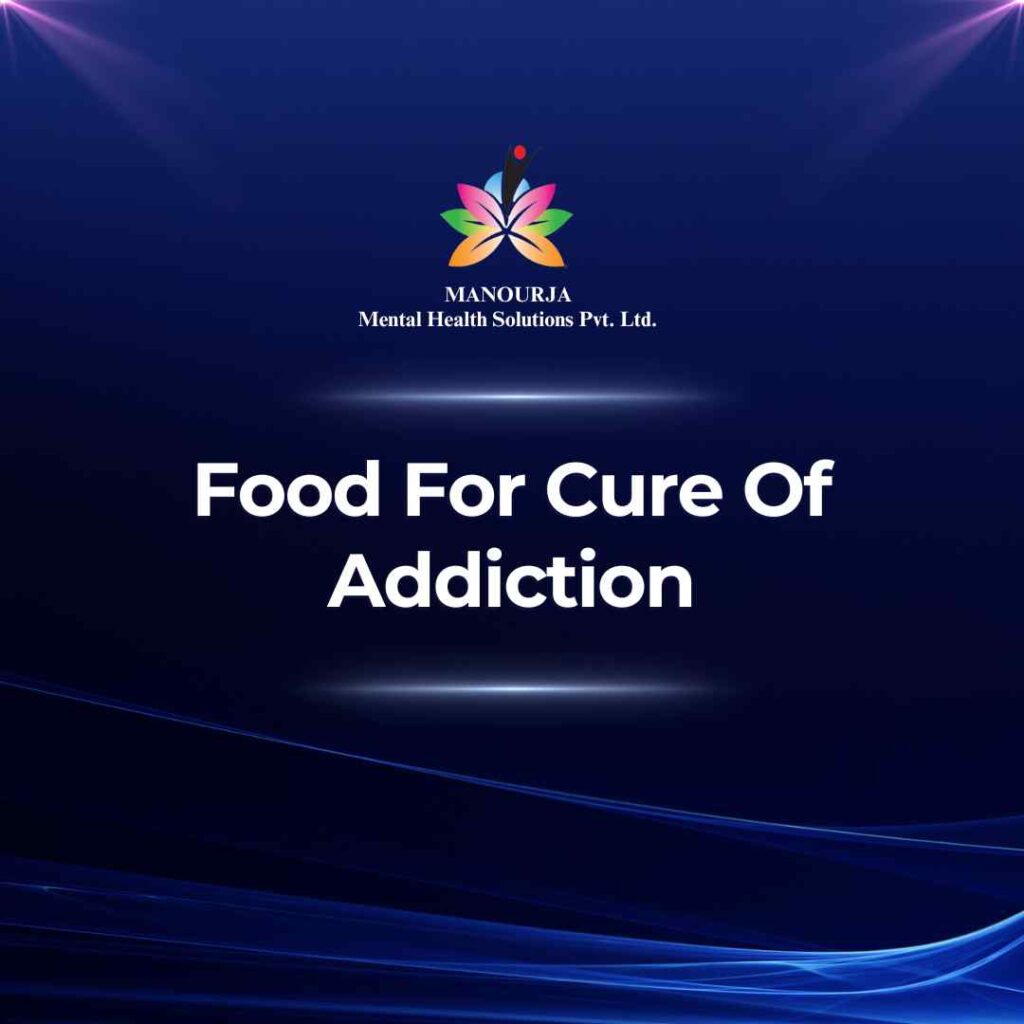Diet for De-Addiction

Nutrition plays a pivotal role in supporting overall health and can significantly influence the recovery process from addiction. While it’s essential to seek professional guidance for a comprehensive treatment plan, incorporating nutrient-dense foods can contribute to physical and mental well-being during recovery.
Here are key aspects of a supportive diet for addiction recovery:
Balanced Macronutrients
- Importance: Ensure a balance of carbohydrates, proteins, and healthy fats to provide sustained energy and support bodily functions.
- Examples: Whole grains, lean proteins, nuts, seeds, and avocados.
Omega-3 Fatty Acids
- Importance: Omega-3s contribute to brain health and may help alleviate symptoms of depression and anxiety.
- Sources: Rich sources of omega-3 fatty acids include fatty fish such as salmon and mackerel, along with chia seeds, flaxseeds, and nourishing walnuts.
Complex Carbohydrates
- Importance: Carbohydrates are a primary source of energy and can positively impact mood and serotonin levels.
- Examples: Quinoa, sweet potatoes, whole grains, and legumes.
Antioxidant-Rich Foods
- Importance: Antioxidants protect against oxidative stress and inflammation, promoting overall health.
- Sources: Berries, dark leafy greens, colorful vegetables, and fruits.
Protein-Rich Foods
- Importance: Proteins support muscle repair, immune function, and the production of neurotransmitters.
- Examples: Lean meats, poultry, fish, eggs, dairy, legumes, and plant-based protein sources.
Hydration
- Importance: Staying well-hydrated is crucial for overall health, aiding in detoxification and cognitive function.
- Options: Water, herbal teas, and infused water with fruits and herbs.
Vitamins and Minerals
- Importance: Ensure adequate intake of vitamins and minerals essential for overall health and recovery.
- Sources: Colorful fruits and vegetables, nuts, seeds, and fortified foods.
Limiting Processed Foods and Sugar
- Importance: Minimize consumption of processed foods and added sugars, as they can negatively impact mood and energy levels.
- Alternatives: Choose whole, unprocessed foods and opt for natural sweeteners.
Prebiotic and Probiotic Foods
- Importance: Support gut health, which is linked to mental well-being and immune function.
- Sources: Yogurt, kefir, sauerkraut, kimchi, onions, garlic, and bananas.
Herbs and Spices
- Importance: Certain herbs and spices have anti-inflammatory and mood-regulating properties.
- Examples: Turmeric, ginger, cinnamon, and chamomile.
Mindful Eating
- Importance: Practice mindful eating to develop a healthy relationship with food and enhance awareness of hunger and fullness cues.
- Approaches: Savoring each bite, avoiding distractions during meals, and paying attention to hunger and satisfaction.
Supplementation, if Necessary
- Importance: Consult with healthcare professionals to assess the need for supplements based on individual nutritional requirements.
- Options: Vitamin D, B-vitamins, and omega-3 supplements may be considered under professional guidance.
While a nutrient-rich diet is beneficial, it’s essential for individuals in recovery to work closely with healthcare professionals, including nutritionists and addiction specialists, to tailor dietary recommendations to their specific needs. Nutritional support, combined with professional treatment, contributes to a holistic approach to addiction recovery.
At MANOURJA, we believe in the transformative power of counseling. Our experienced therapists offer a safe and supportive space where you can explore your thoughts, emotions, and challenges. Through personalized counselling sessions, we’ll work together to develop coping strategies, build resilience, and achieve lasting positive change. Discover the path to a healthier, happier you with MANOURJA counselling services.
MANOURJA Rehabilitation Services
At MANOURJA, we’re dedicated to helping you in rebuild your life, after difficult times. Our rehabilitation services focus on understanding what you need to move forward, whether you’re recovering from addiction, trauma, or any psychological – social challenges. We create personalized plans, that are all about helping you, regain your strength and find hope again. With a caring team by your side, you’ll have the support to make real progress and take steps toward a brighter, healthier future
